
Travel Log: Detroit and Cleveland
Sister Linda Werthman, RSM
October 20, 2018
We woke up at St. Theresa’s convent where five Passionist Sisters serving the Hispanic people of Lansing had welcomed us to stay the night. Our first destination for the day was Cass Community Social Services in Detroit.
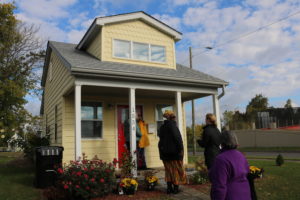 The visit was all that we could have hoped for and more. 24 years ago Rev. Faith Fowler and the Cass Community Methodist Church began what has become an amazing array of services to people who are experiencing homelessness. Now, Cass Community Social Services provides services that allow persons to have access to food, recovery, physical and mental health, employment, recycling and even homes in the form of tiny houses! Rev. Fowler stressed that tiny houses are a tool, a tool to provide persons who are “renters then owners” with dignity, economic mobility, sustainable energy, and community.We were privileged to tour and speak with residents who beamed with pride in their homes and the support they give and receive to their neighbors. We left Detroit for Cleveland enlivened and filled with hope on seeing how a vision of home ownership and economic mobility can be a sustainable reality.
The visit was all that we could have hoped for and more. 24 years ago Rev. Faith Fowler and the Cass Community Methodist Church began what has become an amazing array of services to people who are experiencing homelessness. Now, Cass Community Social Services provides services that allow persons to have access to food, recovery, physical and mental health, employment, recycling and even homes in the form of tiny houses! Rev. Fowler stressed that tiny houses are a tool, a tool to provide persons who are “renters then owners” with dignity, economic mobility, sustainable energy, and community.We were privileged to tour and speak with residents who beamed with pride in their homes and the support they give and receive to their neighbors. We left Detroit for Cleveland enlivened and filled with hope on seeing how a vision of home ownership and economic mobility can be a sustainable reality.
In Cleveland we visited Lutheran Metropolitan Ministry (LMM) where Drew Genszler and the staff of LMM opened our eyes and our hearts to how their services impact people who are homeless, youth at risk; older adults who are vulnerable, people impacted by the criminal justice system and individuals with behavioral health needs. LMM’s unwavering commitment to helping people as they journey towards self-sufficiency was so movingly witnessed by five women in their “Chopping for Change” program. These women shared their stories as well as serving food they had cooked with their newly acquired culinary skills. This innovative re-entry partnership between LMM, the Ohio Department of Rehabilitation and Correction and the Cuyahoga County Office of Reentry provide pre-release workforce training and behavioral health services for people who are in the criminal justice system. Since beginning in 2016, 40 women have been released from prison and gained employment through this program.And there has been 0% recidivism!
The women’s stories so powerfully demonstrated that life is about change and, when given the tools, they embraced a second chance. While nationally the recidivism rate is 49.5% in Ohio, because of the policies they’ve put in place, it is 27.5%! Hurrah for such creative private/public partnerships. LMM’s programs are indeed responsible programs that maximize the federal, state, and county revenues raised through taxation. May Chopping for Change not be on the chopping block to pay for the 2017 tax law. What an end to this the second leg for the Nuns on the Bus Tax Justice Truth Tour.







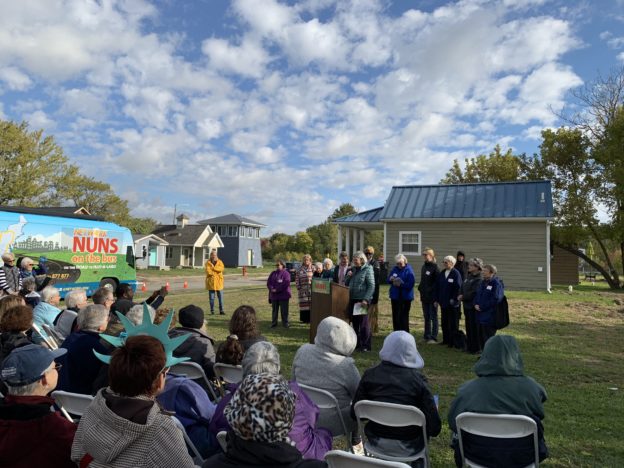
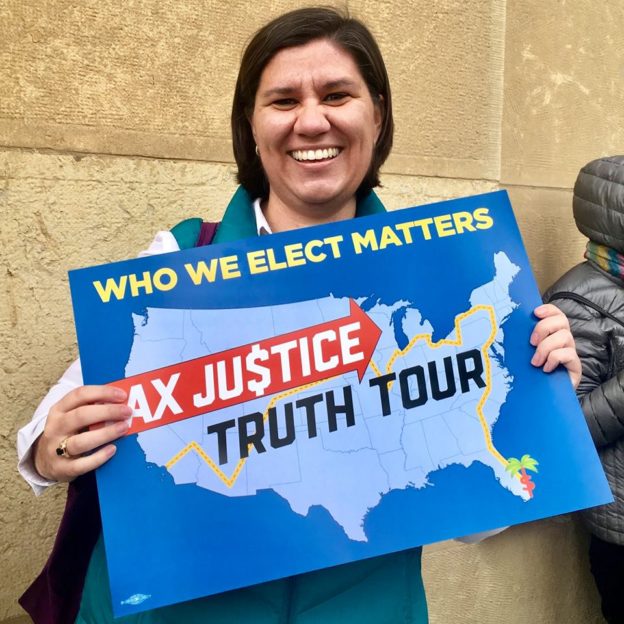
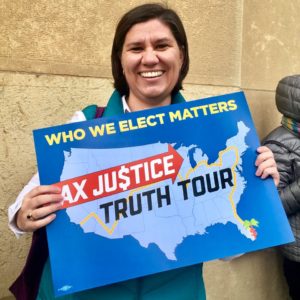
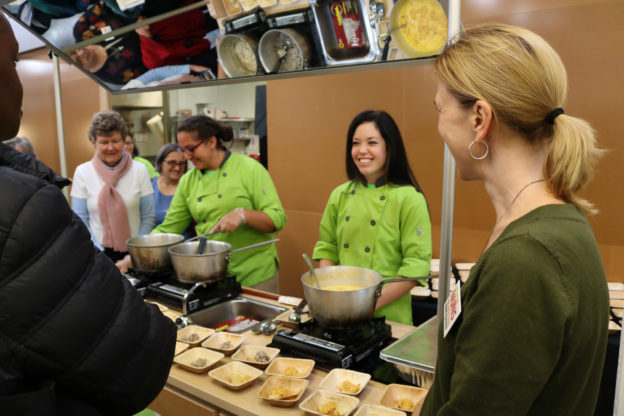
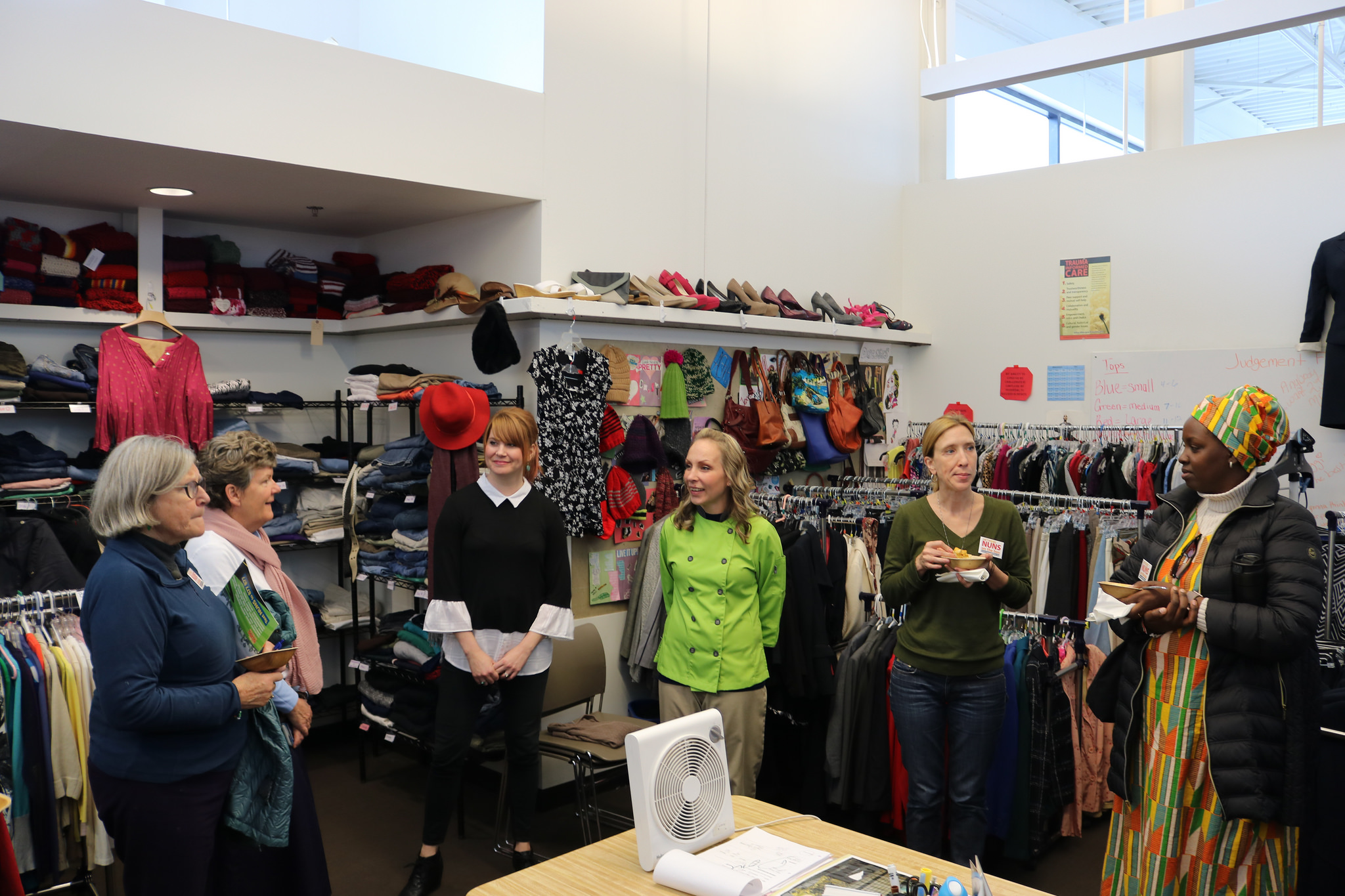
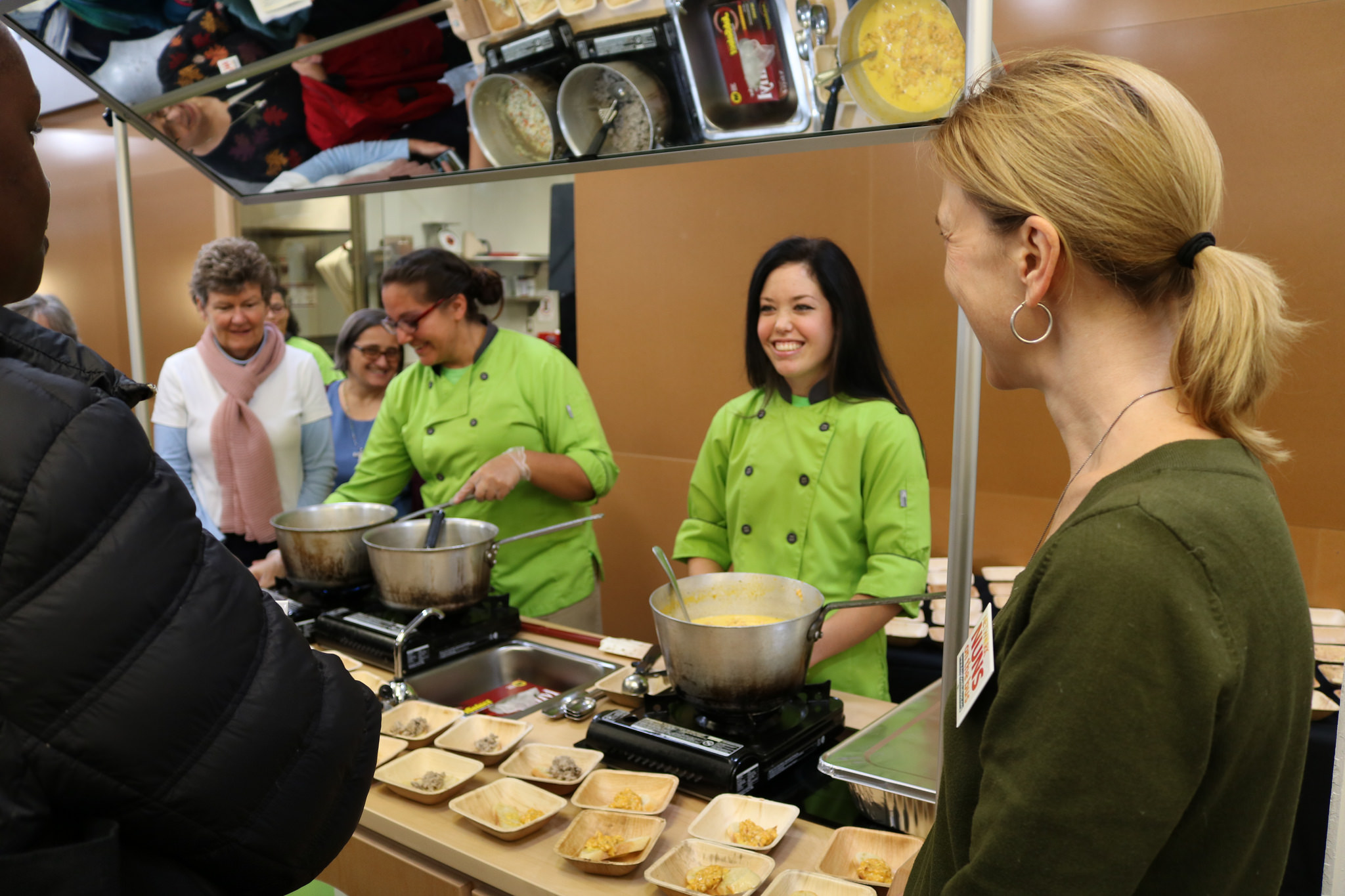
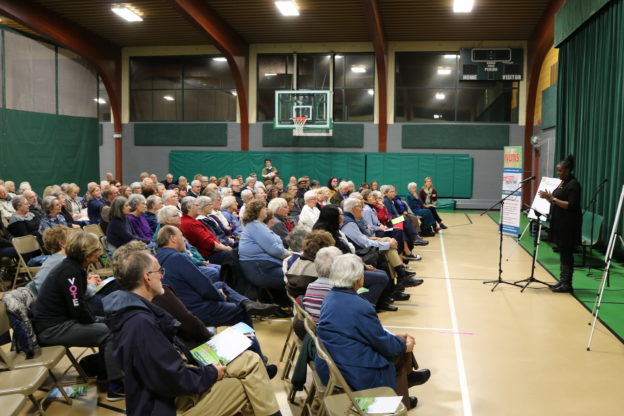
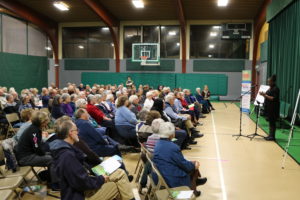 When we arrived to our Town Hall for Tax Justice in East Lansing, the gymnasium was full of very enthusiastic supporters of Nuns on the Bus. There were members of a number of congregations in the East Lansing area and a number of denominations.
When we arrived to our Town Hall for Tax Justice in East Lansing, the gymnasium was full of very enthusiastic supporters of Nuns on the Bus. There were members of a number of congregations in the East Lansing area and a number of denominations.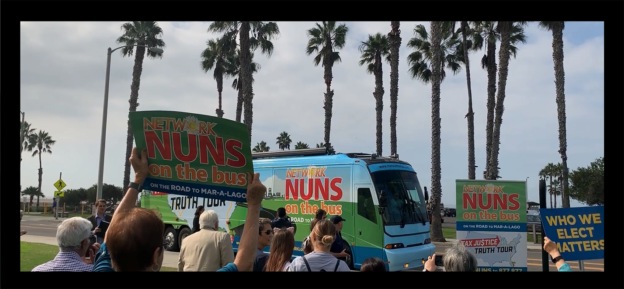

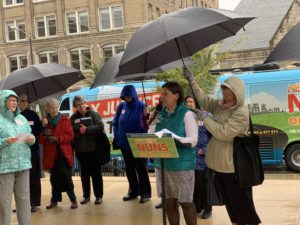 Jessica Brock, a former NETWORK staff member spoke about the focus of NETWORK and the importance of NETWORK’s mission in the reality in which we find ourselves.
Jessica Brock, a former NETWORK staff member spoke about the focus of NETWORK and the importance of NETWORK’s mission in the reality in which we find ourselves.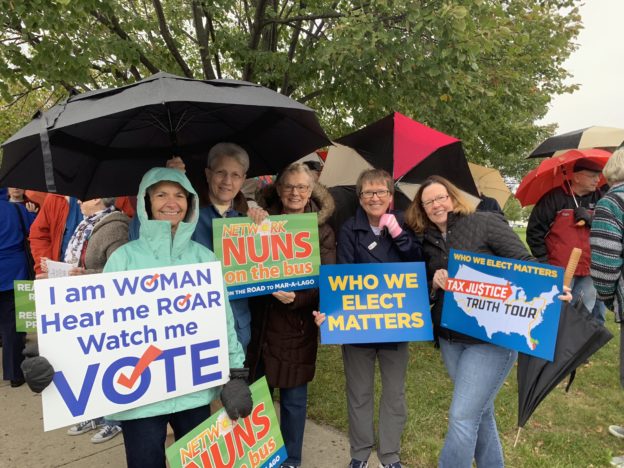
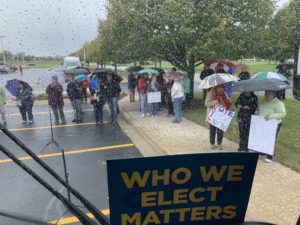 The Nuns and company started our day with french toast, bacon and fruit, complements of our Dominican hostesses, and set off for Representative Peter Roskam’s district office at the DuPage County Airport. Representative Roskam was one of the architects of last year’s Republican tax law and we had heard it was notoriously difficult to get a visit with his staff, so we looked forward to a robust conversation. We and three constituents from Roskam’s districts were met by a cold and guarded staffer named Emily, along with two other staffers, who showed us into a conference room.
The Nuns and company started our day with french toast, bacon and fruit, complements of our Dominican hostesses, and set off for Representative Peter Roskam’s district office at the DuPage County Airport. Representative Roskam was one of the architects of last year’s Republican tax law and we had heard it was notoriously difficult to get a visit with his staff, so we looked forward to a robust conversation. We and three constituents from Roskam’s districts were met by a cold and guarded staffer named Emily, along with two other staffers, who showed us into a conference room.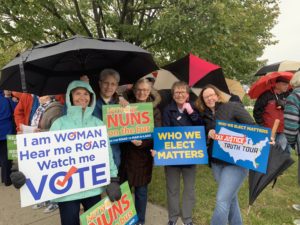 We shook the dust from our feet and were warmly welcomed by a crowd of over 100 folks waiting for us next to the bus in the rain. We had a fabulous, hope-filled rally where, together, we joyfully celebrated the communal strength of “We the People” and anticipated a better way for our nation come November 6th.
We shook the dust from our feet and were warmly welcomed by a crowd of over 100 folks waiting for us next to the bus in the rain. We had a fabulous, hope-filled rally where, together, we joyfully celebrated the communal strength of “We the People” and anticipated a better way for our nation come November 6th.